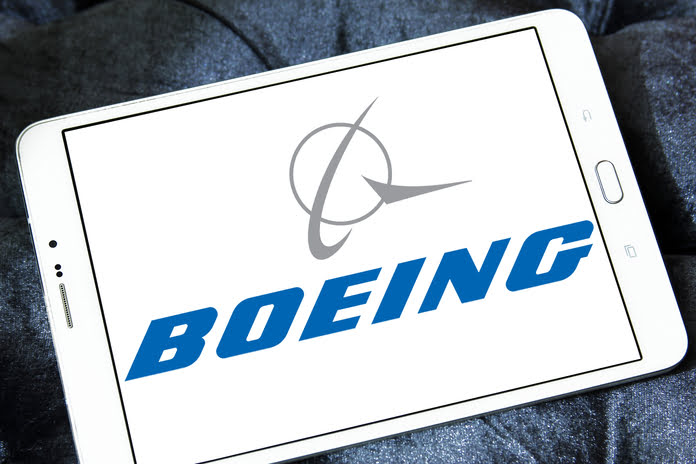Boeing F/A-18 contract news has put the spotlight on the company’s defense sector, with a recent deal to support its F/A-18 E/F aircraft. The agreement, valued at $44.7 million, was awarded by the Naval Supply Systems Command Weapon Systems Support in Philadelphia, PA, and is set to run until March 2029. This development positions Boeing (NYSE:BA) well in the competitive military aircraft market, highlighting the growing demand for advanced defense systems.
Key Details of the F/A-18 E/F Contract
Under the terms of the deal, Boeing will supply 31 cylinder and piston spares for the F/A-18 E/F aircraft. The work is set to take place in Ajax, Ontario, Canada, and St. Louis, Missouri, strengthening Boeing’s already significant presence in the aerospace and defense sector. This contract will enhance the operational readiness of the U.S. Navy’s fleet and reflects the increasing need for modernized military aircraft worldwide.
Why Boeing Stock Stands Out
The global defense market is evolving rapidly, with nations prioritizing the expansion of their military capabilities. This has translated into rising demand for military aircraft, leading to a projected Compound Annual Growth Rate (CAGR) of 3.7% in the fighter aircraft market from 2024 to 2029, according to Mordor Intelligence. Such growth opportunities favor industry leaders like Boeing, whose F/A-18 Super Hornet remains one of the most advanced, multi-role combat jets available.
Boeing’s F/A-18 Block III Super Hornet, available in both single-seat (E model) and two-seat (F model) configurations, is a key asset in the U.S. Navy’s combat capabilities. The aircraft offers next-generation strike capabilities with flexibility for a variety of missions, from air superiority to precision-guided strike operations, enhancing its value to defense clients.
Beyond the F/A-18, Boeing’s military jet portfolio includes the F-15, P-8 Poseidon, T-7A Red Hawk, EA-18 Growler, and C-17 Globemaster III, making it a comprehensive defense manufacturer with broad market reach.
Industry Opportunities for Boeing’s Peers
The defense and aerospace industry is not solely dominated by Boeing. Other key players are well-positioned to benefit from the expected growth in military aircraft demand:
Northrop Grumman Corp. (NYSE:NOC): Northrop is a leader in both manned and unmanned air systems. Its extensive aircraft portfolio includes models like the E-2C Hawkeye 2000 and F-35 Lightning II. With a projected long-term earnings growth rate of 8.7% and an estimated 5.4% sales growth in 2024, Northrop is a prominent name in the defense space.
Embraer (NYSE:ERJ): Specializing in advanced combat aircraft like the A-29 Super Tucano and C-390 Millennium, Embraer stands out in the market with its cutting-edge technologies. The company reported an average earnings surprise of 52.28% over the last four quarters, with anticipated sales growth of 19.1% for 2024.
Lockheed Martin Corp. (NYSE:LMT): As one of the largest defense contractors in the world, Lockheed Martin boasts an impressive portfolio of military aircraft, including the F-35 Lightning II and C-130J Super Hercules. With a long-term earnings growth rate of 4.7%, the company is expected to see a 5.3% increase in 2024 sales.
Boeing’s Stock Price Movement and Industry Outlook
Despite the positive news around the Boeing F/A-18 contract, Boeing’s stock price has experienced a dip in recent weeks. Shares of Boeing have fallen about 12% in the past month, while the broader aerospace and defense industry experienced a modest growth of 0.2%. However, contracts like this F/A-18 deal signal the company’s strong market positioning and potential for future gains.
The long-term outlook for Boeing remains positive, especially with its diversified product portfolio, ongoing contracts, and partnerships across the defense sector. As global tensions and defense budgets continue to rise, demand for advanced military aircraft like the F/A-18 and its contemporaries is expected to support Boeing’s growth.
The Bottom Line
The Boeing F/A-18 contract reflects the company’s commitment to strengthening defense capabilities and meeting the evolving needs of the U.S. Navy and global allies. This deal not only highlights Boeing’s continued relevance in the combat aircraft sector but also underscores the broader opportunities available for other aerospace giants like Northrop Grumman, Embraer, and Lockheed Martin. As the global fighter aircraft market experiences steady growth, Boeing and its peers stand to benefit significantly from increased defense spending and demand for advanced military technologies.
Featured Image: Megapixl© Mohammedsoliman4_5









